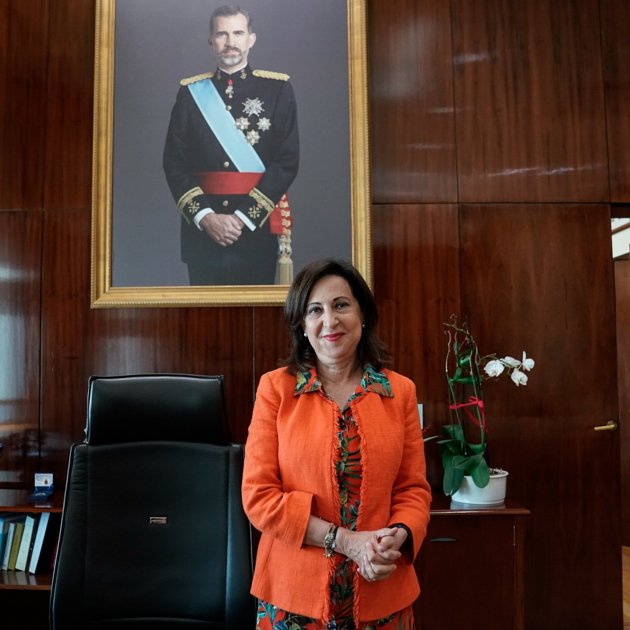Six Spanish Air Force Eurofighter jets will patrol Lithuanian airspace from April 1st, in addition to the four it is sending to Bulgaria from this Friday until April 31st in "non-offensive security tasks to preserve peace" within the framework of NATO's operations. The new step upwards in Spain's role coincides with the diplomatic crisis between the West and Russia over the latter's threat to Ukraine. The Spanish minister of defence, Margarita Robles, informed reporters of the new move after presiding this Thursday over an official ceremony of recognition to the Spanish armed forces for their work during the coronavirus pandemic, at Torrejón de Ardoz air base, near Madrid. "This Friday, as planned and announced in advance, four Eurofighters will leave to carry out tasks of air policing that Spain has been carrying out since 2015 and in this case they will go to Bulgaria," said the head of defence.
She clarified that "they are leaving this Friday, but the 15th is when they will be transferred to NATO command, and they will be there until March 31st." "A total of four Eurofighters will go to Bulgaria tomorrow and six will go to Lithuania because there is more infrastructure," she added. She stressed that they would perform "air and patrol work, which in no way is offensive, it is simply security and stability." "We are not doing anything new, nothing different from what we have been doing, it is the manifestation of Spain's commitment to NATO and we continue to commit ourselves with all rigour and seriousness via diplomatic channels and through dialogue," emphasised the minister in reference to the tensions created by the deployment of the Russian Army near the border with Ukraine. Robles said she had spoken to the lieutenant colonel in command of the NATO operation.
Spanish rhetoric: a glance at Catalonia
Spanish foreign ministry sources told the newspaper El Periódico de España at the end of January that Pedro Sánchez's executive was looking to become a key NATO ally to defend the "sovereignty" and "territorial integrity" of Ukraine in the face of the Russian threat, rhetoric that contains sideways references to the Catalonia situation. Thus, and despite the unrest generated among the PSOE party's governing partners by the prognosis of a war in Europe, the state would be willing to assist the Alliance "in dialogue", but also in the "deterrence" against the Russians, to move closer to the approach of the United States and "deepen" collaboration. "The Spanish government, highly aware of the failed unilateral declaration of independence in Catalonia, must react strongly to the threat to the "territorial integrity" of Ukraine," says the Spanish news article. And apart from the militarization of the border with Ukraine, the main concern for NATO at the moment is that the Russian Duma is currently debating the recognition of the pro-Russian people's republics of Donetsk and Lugansk in the east of the country. In turn, this "interference" in the sovereignty of the region has worried the political formations of the Spanish left, including the PSOE's junior coalition partner Unidas Podemos, and has led this alternative left political grouping to publish a manifesto, demanding that Sánchez respect the "sovereignty" of the peoples and rejecting military threats "from one country to another sovereign state, whoever it may be."
